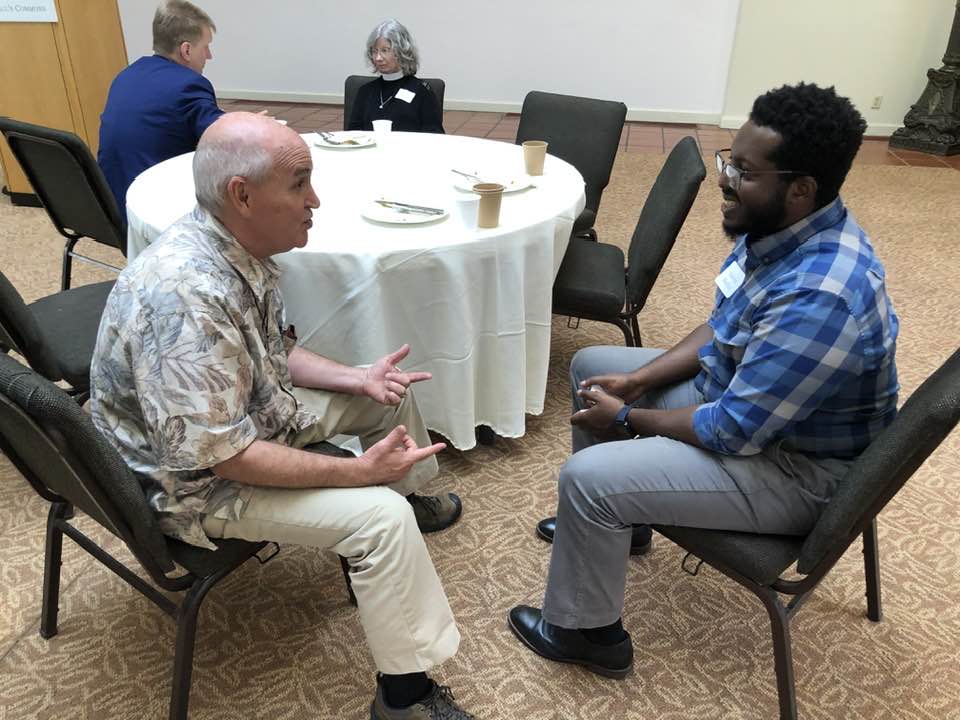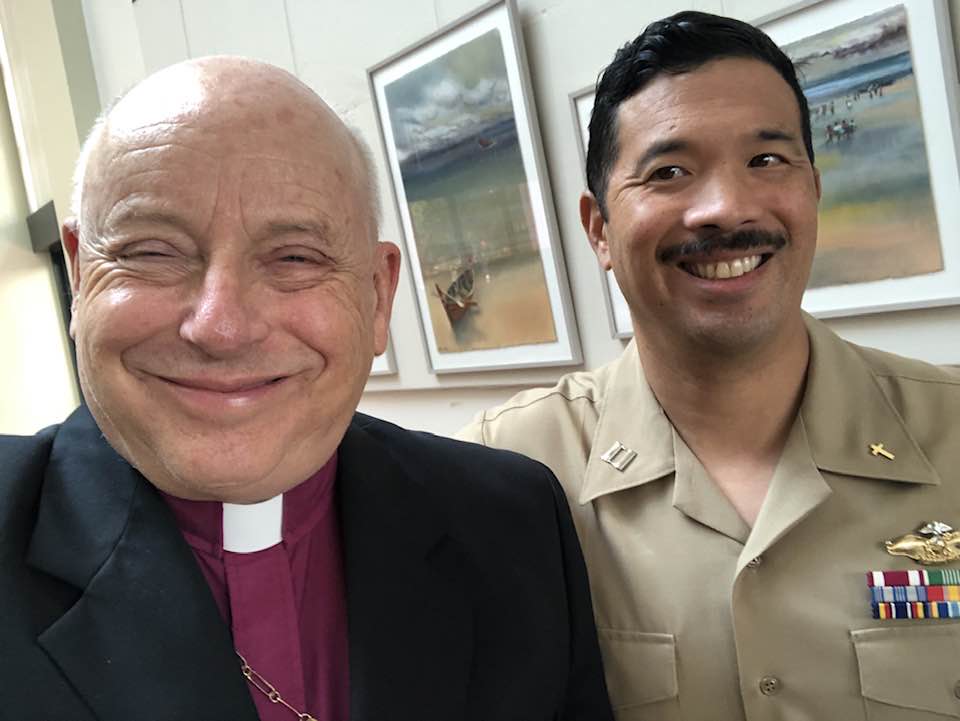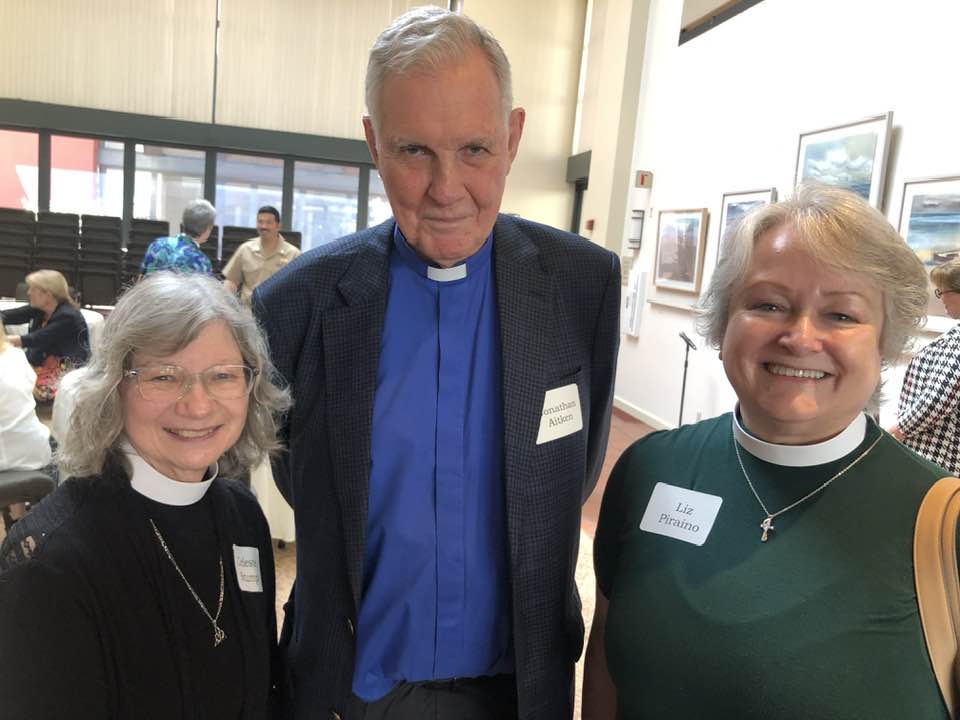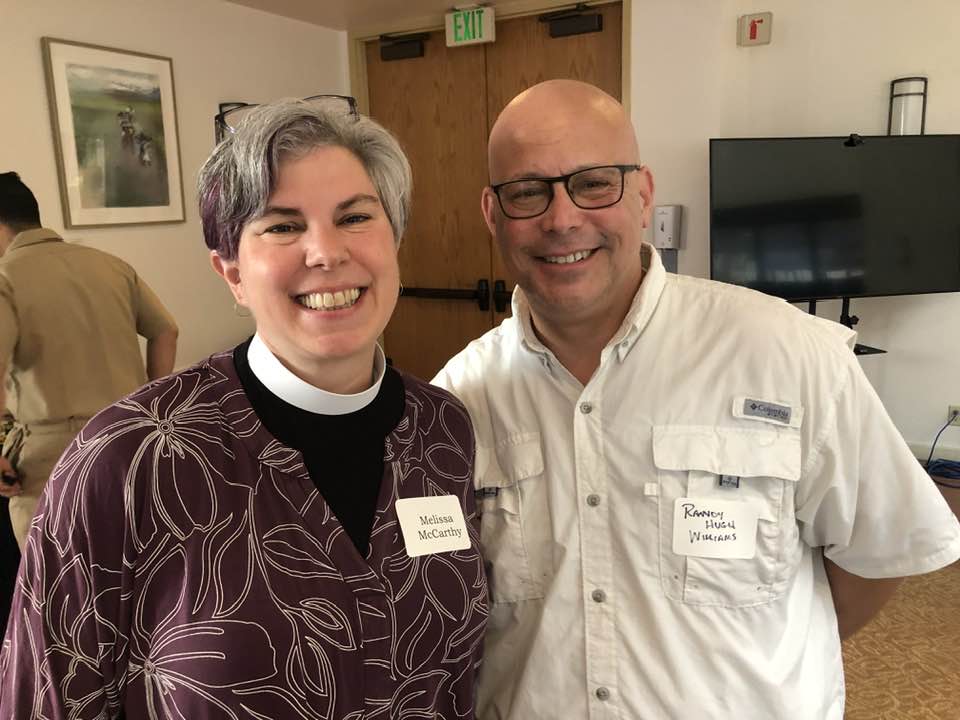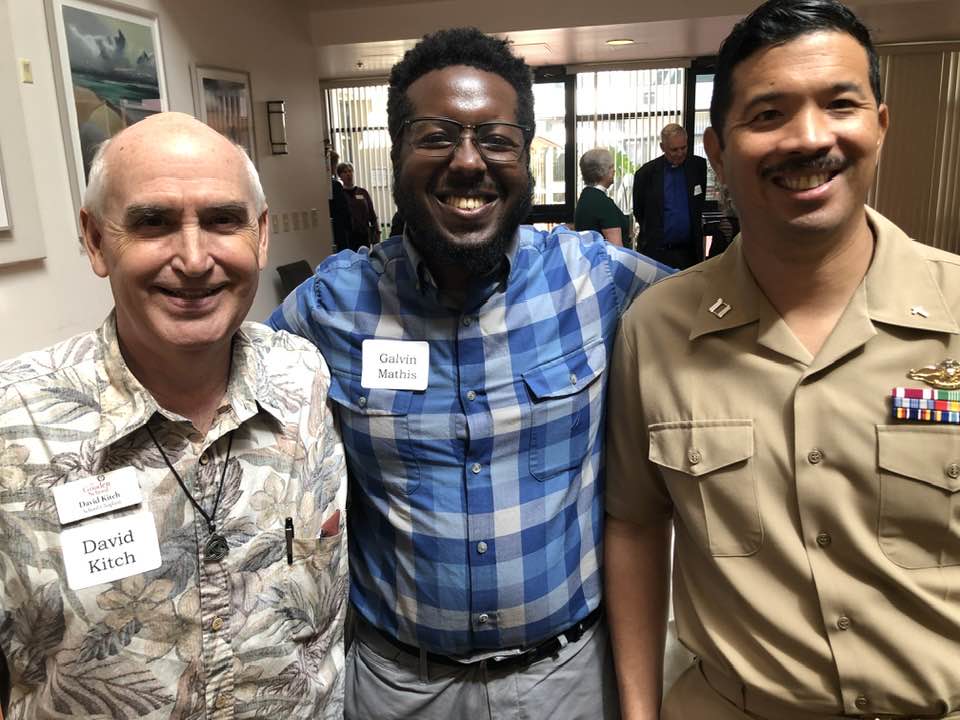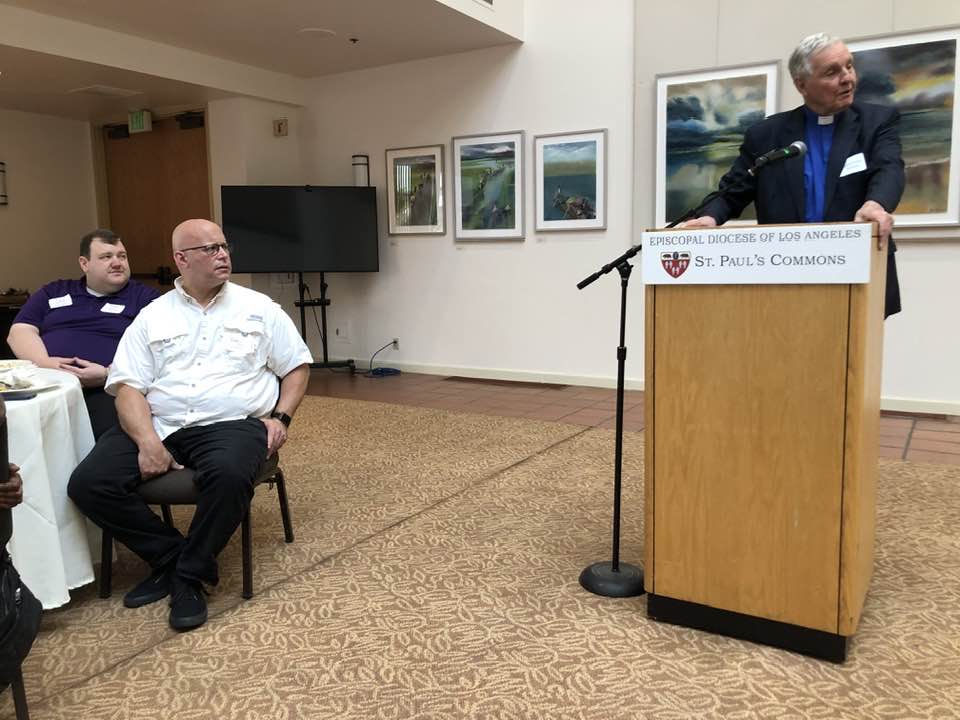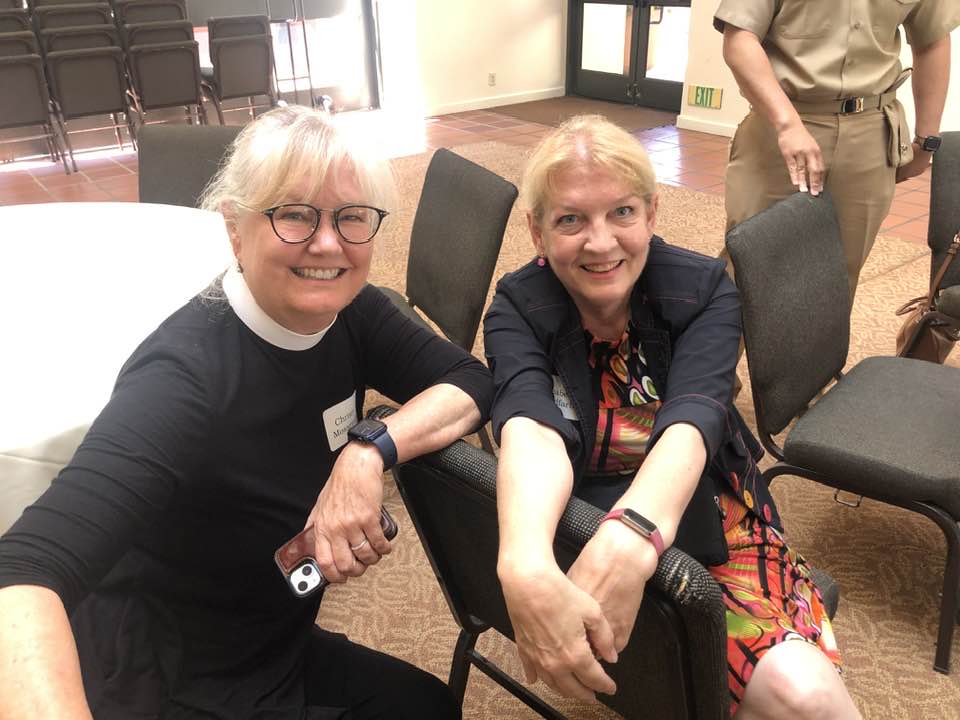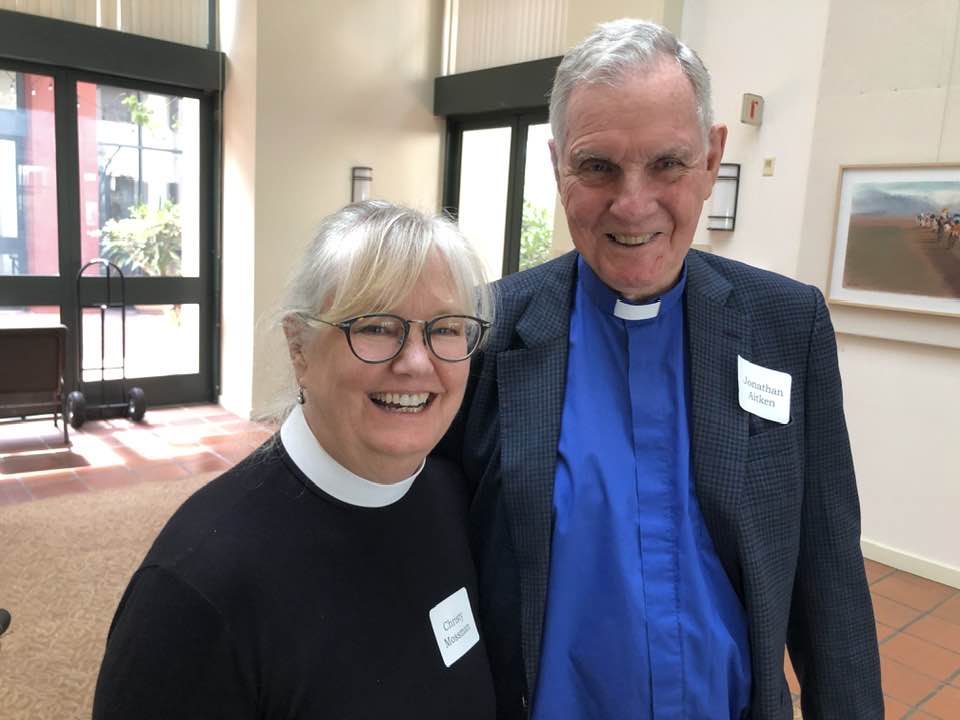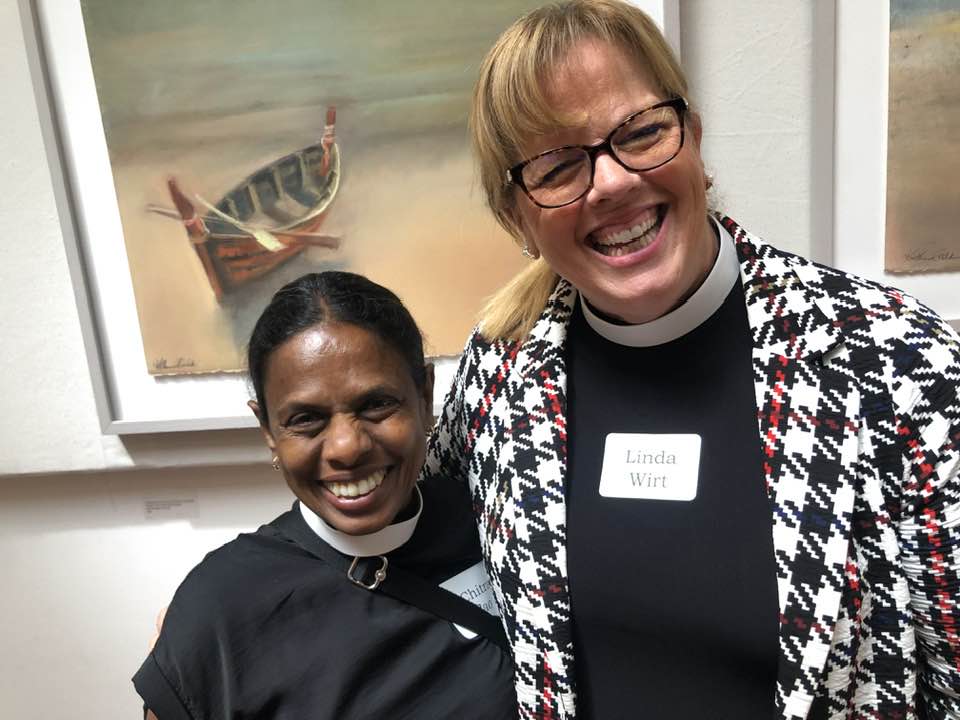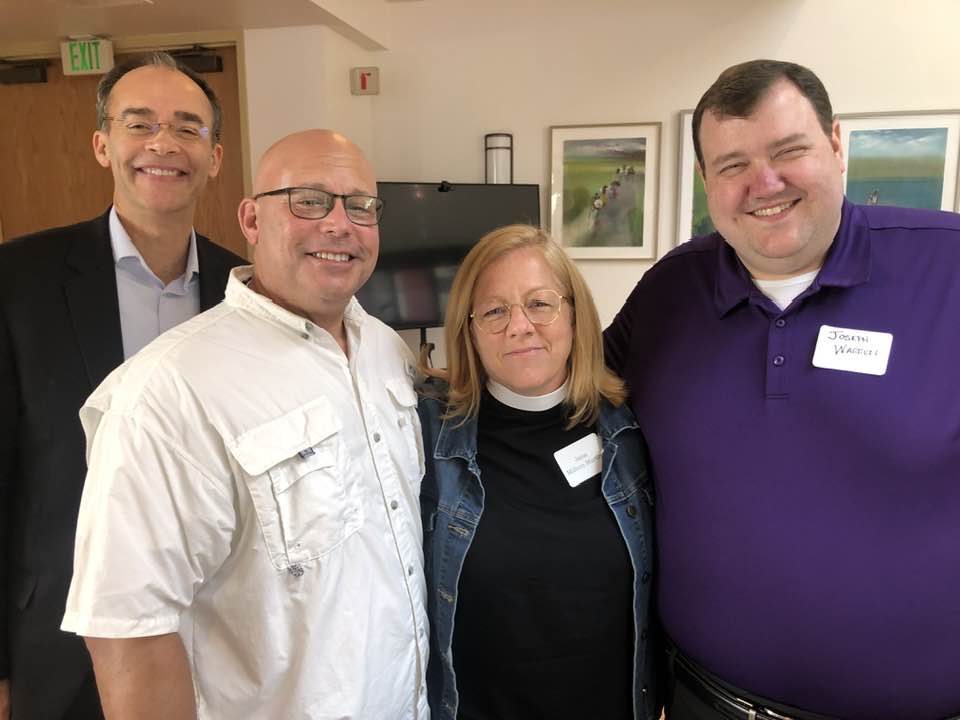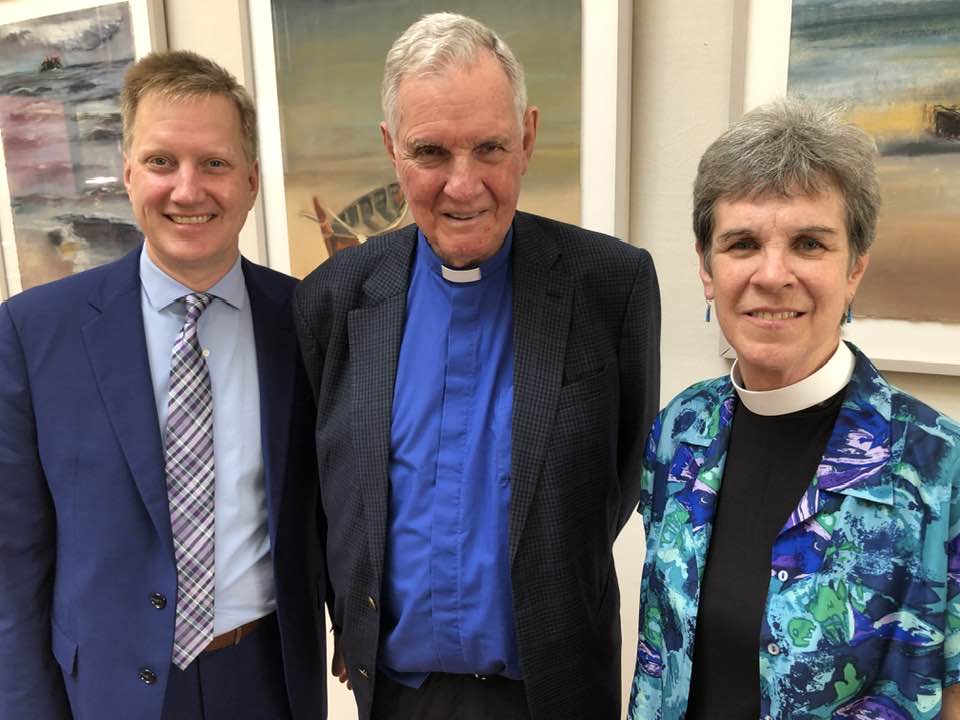
“Not you with your frightful blather again!” Using different words starting with the same consonants, that’s what a prisoner said when the Rev. Jonathan Aitken was announced as the homilist during one of his turns as Great Britain’s most famous prison chaplain.
Perhaps it was just the collar. Jonathan had been a chaplain for over 20 years by the time he was ordained as a Church of England priest in 2019. Sharing lunch today at St. Paul’s Commons, Echo Park with Episcopal Diocese of Los Angeles chaplains, he provided a glimpse of his colorful story. Our guests included Jonathan’s friend and colleague Peter McDonald, president of the McDonald Agape Foundation, which supports theological study at a score of colleges, universities, and seminaries.
Jonathan was born in Dublin to a distinguished British political and journalistic family and earned youthful fame as a war correspondent and then an MP. Canon Kathy Hannigan O’Connor and I have been his friends for nearly 40 years. He was close to our former boss, Richard Nixon, and is the author of “Nixon: A Life,” a friendly and yet still creditable biography.
He’s written 19 books in all – most since his rough epiphany. As a member of Prime Minister John Major’s cabinet in the nineties, he was approaching the highest reaches of power when he was convicted of perjury and sentenced to 18 months in prison. His transformation from nominal to committed Christian began as the tabloids continued to have a very good time at his expense, falsely claiming he was afraid to leave his cell. He told a prison chaplain that he was incandescent with rage at one reporter in particular. The chaplain suggested he pray for the grace of forgiveness.
It didn’t happen overnight, he told us. But it happened, deepening his relationship with the risen Christ. Before long, he was paying it forward. At the Lambeth conference last summer, knowing Jonathan gave me considerable entrée. Several COE bishops praised his prison ministry. Archbishop of Canterbury Justin Welby told me how much he appreciated Jonathan taking his mother, Elizabeth, communion each week. Lady Elizabeth died this summer.
The Rev. Betsy Hooper-Rosebrook, our first-ever dean of chaplains, was my co-host at today’s lunch, where prison, school, military, and hospital and assisted living chaplains came together, for the first time in recent memory, as a family of lay and ordained ministers doing comparable work in far-flung vineyards.
Jonathan told us that chaplains are growing in prominence in the COE as well, and for the same reasons, as they minister to those in crisis whether they are churched or not — practical evangelists for the unstoppable work of the Holy Spirit even in secularizing times. “That’s the essence of chaplaincy,” he said. “You don’t have time for arguments. You just get on with it.”
